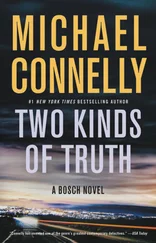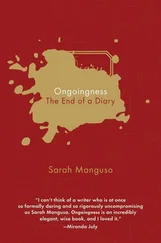This is how I wound up in lockdown.
First I took prednisone for four years.
Then I had abdominal surgery. There was a tumor on my left ovary. Benign. Lemon sized. I was in the middle of my second year of graduate school, but I had to have it out. My lover and I found it in the usual way. He was lying down. I was sitting up. Then I felt a pain, and we had to stop. Later we found out he had moved my ovary.
So I had the surgery during the spring semester, and because I had been taking prednisone for four years I had to be given a bolus of the steroid to help my body through the surgery. The adrenal glands get lazy when there’s already so much steroid in the body, and when it’s time for the glands to produce a lot of adrenaline, suddenly, when the body is under great stress, stress like an abdominal surgery, the lazy adrenal glands are too sluggish to keep up with the body’s demand.
This adrenal suppression occurs if prednisone is taken for longer than seven days.
Coming out of general anesthesia, I shook so horribly that I went to the ER to make sure I didn’t have an infection. Prednisone weakens the body’s ability to fight infections, and in the previous four years I’d had a lot of them — fungal, viral, bacterial. They were hard to treat. I always had at least a couple of rashes going.
I knew, though, that if I were shaking from a postsurgical blood infection, I could die pretty quickly.
In the ER I had no fever, but the doctors tested my blood pressure lying down, seated, and standing, and saw that my heart wasn’t working very well, so they gave me another steroid bolus. It went in and in fifteen seconds I stopped shaking and felt wonderful. Euphoric. Which is normal after a shot like that.
Then my lover, who had moved my ovary, drove me home.
But in a couple of hours I started shaking again. My muscles were cramping, and the pain got so bad that we went back to the ER for another bolus.
Then the whole thing happened again. On the third ER check-in, I was admitted to the hospital.
We didn’t know yet that it hadn’t been a dearth of steroid that had caused the shaking but an overdose. And that after that overdose, of course, I had been given three more shots.
After the three shots, lying in my room at the hospital, I began to hallucinate. The condition is referred to as steroidinduced psychosis.
I saw soldiers in my room. They were dressed in red uniforms with tails and gold buttons. They were British soldiers from the American Revolution.
They were there, of course, to prevent their territory from being taken over from within. They were my blood, and the revolutionary soldiers, absent from this scene, were my antibodies.
The soldiers paced quickly around my bed, their swords by their sides, looking at the ground, but I could see their solemn faces, which showed me they would fight to keep me safe.
Despite my soldiers, I felt so agitated from the massive amount of extra steroid in my body that I was screaming. I screamed until I ran out of breath and then took breath to scream again. I got out of bed and ran in place like a boxer. I was running and screaming because I was full of adrenaline. My body had made a sensible decision.
A nurse heard me screaming and gave me a shot of Demerol to calm me down. I stopped screaming for half an hour. Then she gave me another shot of Demerol.
In a couple of hours I had been given as much Demerol as the hospital would give me, so I spent the rest of the night running in place and screaming. Since I was hoarse, the screaming was quiet.
The next day, I am told, I had several visits and phone conversations with people from my graduate program.
They called and visited because the director of the program had spoken with a representative from the hospital and misheard the phrase adrenal failure as the phrase renal failure. And she had announced to everyone that they should call or visit to say goodbye, because I would soon die.
I don’t remember the visits or the phone calls. Later I heard I’d told a visitor that I’d slept with someone else from our graduate program, which I had, once, a year before.
In a few days I was discharged from the hospital and moved back into my apartment, but I hadn’t recovered from the overdose.
In two months, unable to get out of bed, I called my parents in Massachusetts and said I needed them to come to Iowa and bring me home.
I had a fever, aches, rashes, muscle weakness, and extreme fatigue.
As soon as I was back in Boston I went to see my neurologist, expecting he’d send me right downstairs to be infused with gamma globulin.
But my neurologist said the weakness and fatigue weren’t CIDP symptoms, and he was right.
He said there was nothing he could do to make the symptoms go away, and that it was a separate, probably viral, syndrome, and that I should see an infectious disease specialist.
I got home, got into bed, and began yelling with grief, which was something I hadn’t done before. Again, as it had in the hospital in Iowa, my body decided sensibly on a course of action. I was too sad to cry. I had to yell. The yelling relieved my sadness better than crying would have.
After five more months of the fever and the other symptoms, the cause of which was never determined, and after living at my parents’ house all that time, mostly in bed, I woke one day knowing I couldn’t tolerate another day of my life, that this would be the last day. I told my mother. She asked me how I was going to do it, listened to the answer, took away my car keys, locked the garage, and drove me to see a therapist, who talked with us together, and then to my mother alone.
Then my mother drove me home and helped me pack a few things. And drove me to a different hospital from the one where I’d spent so much time being treated for CIDP.
During the evaluative interview, made one mistake. I said I didn’t believe I would ever get better from whatever was wrong with me.
And so I was admitted, with severe depression, to the locked ward.
I was still taking a daily dose of steroids.
Wait — what would I have done if I’d been told one of my classmates would soon die of renal failure at twenty-five?
Would I have phoned? Visited? Brought a gift?
I was told that two men from my graduate program called me. One poet and one fiction writer. I don’t remember.
It is sweet to imagine the conversation they might have had before calling me. One of them asking the other if he’d like to come over and talk with their classmate, together, before she died.
Maybe afterward they talked with each other about how I’d sounded — as if I would soon die, or as if maybe I wouldn’t.
What would I have done? If it were, say, the guy from New Hampshire I’d always liked? I think I’d have called him.
What if it had been the girl with the glass eye, whose life seemed so boring, with her fiance and her car and her many hobbies? I’d have sent a card, maybe.
The stunning woman from Brussels — she visited. And brought a pile of magazines. But now that I think of it, she may have sent the magazines with someone else. It is hard to remember. I was blacked out, so anything seems plausible.
I like to think I would have said something to the dying person.
Would I have written about the dying person?
If I were a little in love with the dying person, would I have written little secret poems about this love? Would I have showed them to anyone, submitted them for publication?
Did anyone do that?
How did my classmates experience my death by renal failure in 1999?
Читать дальше












